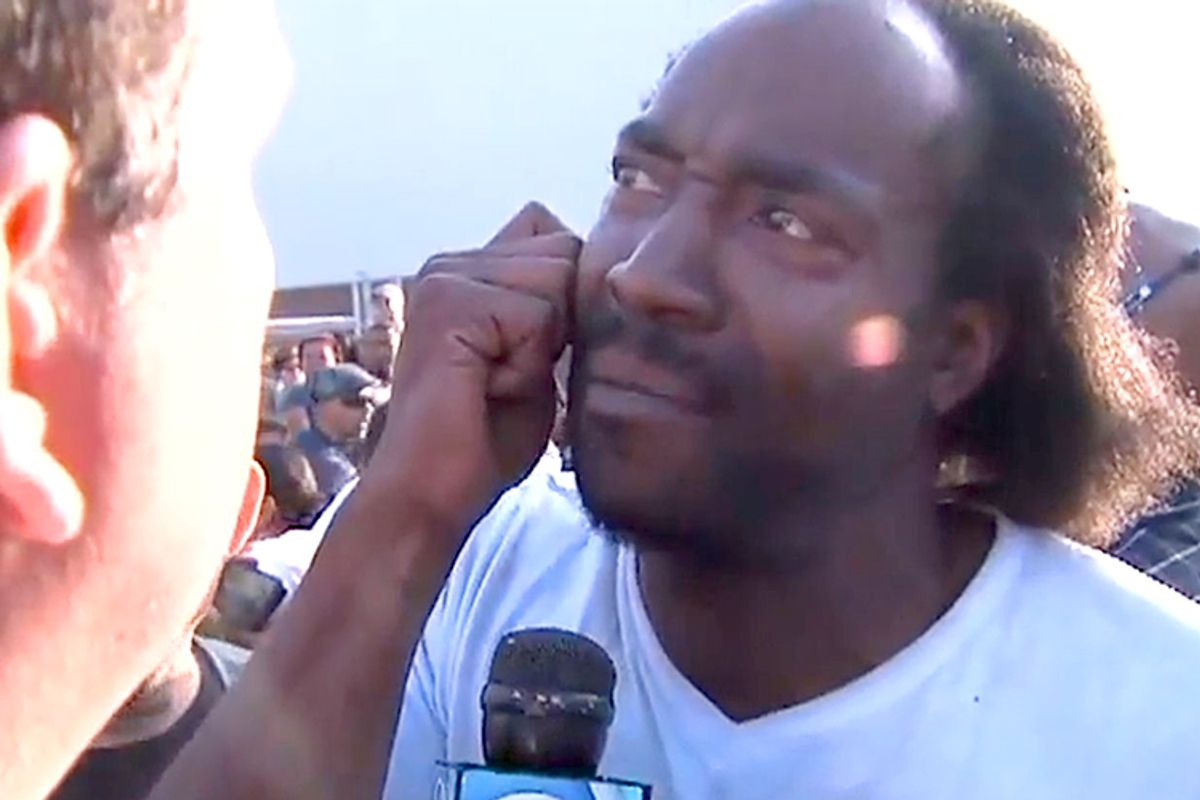In hindsight, maybe Charles Ramsey was trying to tell us something when he insisted to Anderson Cooper Tuesday night that he’s not a hero. “No, no, no. Bro, I’m a Christian, an American. I’m just like you,” he told the news anchor.
Maybe he knew the whole hero story line would come with an unhappy ending: Now we’ve learned, via the Smoking Gun, that Ramsey was charged with and served time for multiple domestic violence counts. He was also convicted and imprisoned on drug charges and receiving stolen property.
All of that is awful, particularly for his ex-wife and daughter. But it doesn’t change the fact that Ramsey was a hero when he helped Amanda Berry escape Monday night. It may make him even more admirable, if he had an inkling that his sudden fame might expose his troubled past.
Writing my piece about Cleveland's lost girls, I watched Ramsey's interview with Cooper twice just before the news about his past convictions broke. Even without that information, I found the encounter a little strange. For one thing, Ramsey insisted on saying Ariel Castro was “cool,” and not a “freak of nature.” He seemed to be reminding us that even monsters can appear decent, and even decent people can do bad things.
Many observers have already noted that it was remarkable for Ramsey to intervene even though he said he thought it was a domestic violence dispute, when so many people look away and do nothing. Maybe his own experience played a role in his response; maybe there was some hope for redemption. But at any rate, the fact that a convicted abuser intervened to stop abuse is a good thing, not a scandal.
There’s also some evidence that he’s turned his life around. His boss at the restaurant where he’s a dishwasher called him a "hero" and told local reporters: "What you see in the video is what you get with Chuck. He's calm in the face of crazy and hectic things going on. He always steps up to do anything you ask. He'll come out with us on catering events. He never says no. He always jumps on it."
To dismiss the character Ramsey showed in rescuing Berry is to suggest that nobody who’s ever done something bad should try to do something good, because the bad will always matter more. It would be a shame if Ramsey’s exposure, and the cackling about his past from some quarters, served to discourage other ex-convicts from helping others for fear that their pasts will come back to haunt them.
More details may yet emerge to complicate Ramsey’s character. If it turns out he knew anything about the detention of Berry, Gina DeJesus and Michelle Knight, and didn’t act, that would be shameful. He told Cooper “now I’m losing sleep” over the revelations about the torture chamber next door.
He was also adamant that not only was he not a hero, but that any reward money that exists should go to the victims, not to him.
I tell you what you do, give it to them. Because if folks been following this case since last night, you been following me since last night, you know I got a job anyway. Just went picked it up, paycheck. What that address say?….Where are them girls living? Right next door to this paycheck. So yes, take that reward and give it to [them]….
Charles Ramsey doesn’t want a reward. But he doesn’t deserve shame and scorn either. He did something heroic, and his past can’t change that. It only makes it more remarkable.



Shares